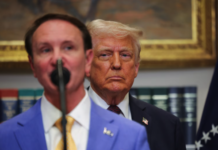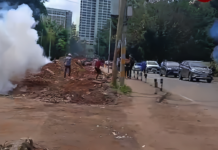An estimated 12,500 families with children have been left homeless as the French government undertakes what critics are calling a ‘social cleansing’ campaign.
With President Emmanuel Macron eager to showcase the grandeur of France, vulnerable populations become collateral damage in the race to present a pristine image to the world.
Reports reveal that under bridges that once offered solace to the homeless, spiked concrete blocks have replaced their makeshift shelters. Squats and migrant encampments, which have long served as homes to those on the fringes of society, have been forcibly dismantled across the capital.
While some individuals have been relocated to temporary accommodations or moved to other cities, the fate of many remains uncertain, raising serious concerns among advocates and charities dedicated to addressing homelessness.
“This is a calculated effort to erase the visible signs of poverty in Paris,” stated Aurelia Huot, a lawyer with the Paris Solidarity Bar. “The French government is undertaking what we call social cleansing, pushing away individuals who live and work in the streets—migrants, the homeless, and vulnerable populations—to avoid tarnishing the image of the city.”
Huot emphasized that the issues faced by these marginalized groups—ranging from lack of affordable housing to inadequate social services—have not been addressed. “We are not opposed to the Olympics,” she continued.
“But if even 1% of the budget allocated for the Games had been directed toward social issues, we could have provided proper housing and support for these individuals.”
Despite numerous charities and organizations striving to assist those impacted, the current situation remains dire. Many advocates contend that the government has turned a blind eye, leaving stakeholders without answers.
“Right now, we do not know what has happened to these people,” Huot lamented. “They are not to be seen anywhere!”
As the countdown to the Olympics continues, the plight of those displaced highlights a pressing dilemma: the cost of progress versus the lives of the vulnerable.
Activists are calling for greater accountability and a reevaluation of priorities, urging officials to consider the welfare of all citizens, not just those who contribute to the city’s tourist appeal.
As Paris prepares to welcome athletes and spectators from around the world, the question of how to create a truly inclusive environment remains unanswered, leaving many to wonder whose interests are truly being served in this grand showcase of sport and culture.


















